Ashes 2017: Profit-share for Australian players has led to loudest build-up ever
I’ve been thinking of Kerry Packer’s influence, especially re players, as the most talked-up Ashes series gets under way.
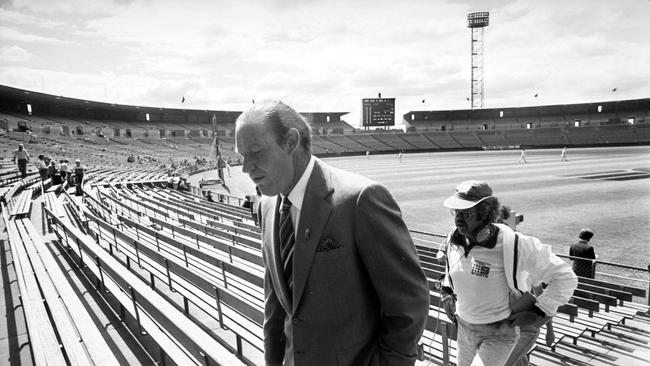
The front cover is a cracker: Wayne Daniel, pink shirt unbuttoned to the chest, walking back to his mark malevolently, his gold chain swinging from side to side, sleeves rolled up, ready to do business.
Gideon Haigh’s The Cricket War, for that is the book that Daniel’s picture adorns, has been republished this year, on the 40th anniversary of Kerry Packer’s World Series Cricket, and 24 years after its initial publication.
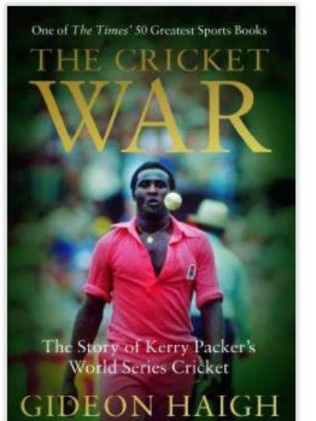
For some reason it had always passed me by, but on the flight to Australia I delved into it for the first time and it’s a tremendous read. As you would expect, it’s brimful of classic reportage, held together by a terrific storyline. The index illustrates what a fine piece of reporting it is, noting interviews with about 50 of the participants, both those involved on and off the field - but not Packer, who was uncooperative - and hundreds of books and journals of the time.
ASHES 2017 LIVE: Follow our day 1 blog
Packer’s World Series Cricket was a formative influence on the modern game - you could argue the most formative. For those watching the Ashes on television this week, all the camera angles and gizmos had their antecedents in Packer’s competition and the hype, well that’s pure Packer, too. Not that he made cricket popular. Cricket was already popular and ripe for exploitation, which is exactly why he wanted a piece of it.
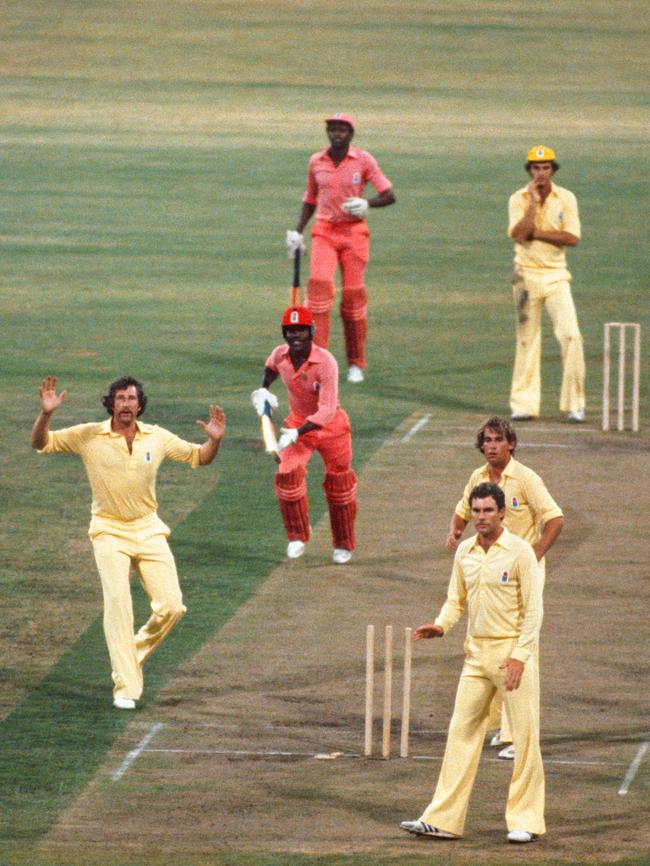
He was a determined man, helped on the way by a variety of administrators who saw cricketers as cattle to be exploited, and not for very much. The oft-quoted Australian board secretary of the time, Alan Barnes, summed up the administrators’ view of players: “These are not professionals, they were all invited to play and if they don’t like the conditions there are 500,000 other cricketers in Australia who would love to take their place.”
Not surprisingly given this view, Packer’s victory was a swift one, gaining the best players first of all and then ultimately the rights to Australian cricket, which remain the prize of his erstwhile television station. For the first time, cricket was seen to have value for those interested in the sport and its commercial possibilities. From there everything else followed: enhanced television production, marketing, commercial exploitation, all the way to the Indian Cricket League, the Stanford T20, the IPL and beyond.
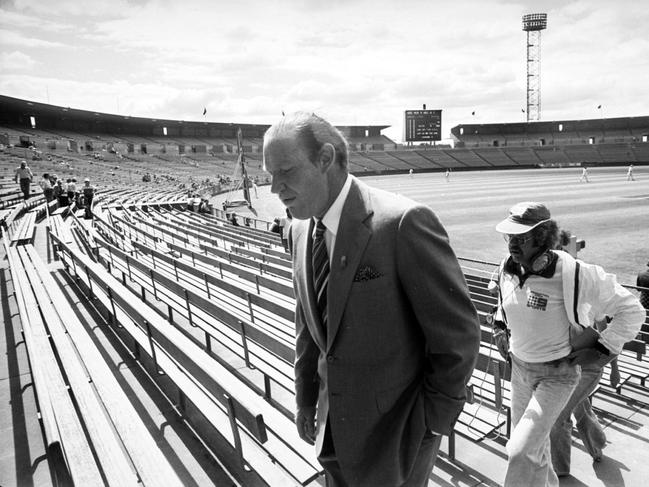
I’ve been thinking of Packer’s influence this week, as the most talked-up Ashes series ever gets under way this morning. Every Ashes series seems a step up from the previous one - compound hyperventilation, if you like - and this will be the 15th that I’ve been involved with in some shape or form.
I cannot remember a series that has begun with the participants so out there, in terms of availability, visibility and general noise. This year they’ve almost drowned out the former players, which is saying something.
It is hard to compare, of course, with so much time having passed, but I remember my first Ashes Test as captain, in August 1993, against Allan Border, when we were the only two out in the middle for the toss - no cameras, no radio, no company at all. Low-key press conferences before and after the match.
The Gabba that I played at first of all in 1990 still had the Moreton Bay figs, the hill and the dog track running around the outer. It felt like a big deal to this 22-year-old, of course it did, but nothing that compares to now. It is on a different scale altogether.
And access for the media? The captains spoke before and after the game, but no one else. It wasn’t until the late Nineties, by my calculation, that players were routinely put up for interview after each day’s play. On Monday, this week, three days out, nine players alone were so designated. Of course, one shouldn’t complain but the landscape is fundamentally altered. It has the feel of a frenzy, with lines picked up, analysed, and, not altered, but their sense magnified, ready for rebuttal. On it goes.
I have had the clear sense this week that while England are a little uncomfortable with that, Australia are playing the game for all it is worth. Once players were participants only. The Packer revolution began the notion that they were promoters, too. Once you understand that shift, you understand the rationale behind much of what has been said this week. The Australian angle has felt very deliberate.
After all, having recommitted to a revenue-sharing deal with Cricket Australia this summer, the players are partners in the game not chattels, and they will benefit financially from the game’s growth and exposure. In this they are in unison with the governing body, which, having once frowned on someone like Packer, is completely in step with the changes that he wrought. Cricket is fighting for the advertising and consumer dollar and Cricket Australia is fighting very hard.
Packer would have enjoyed the irony.
Paine deserves a slice of luck on test return
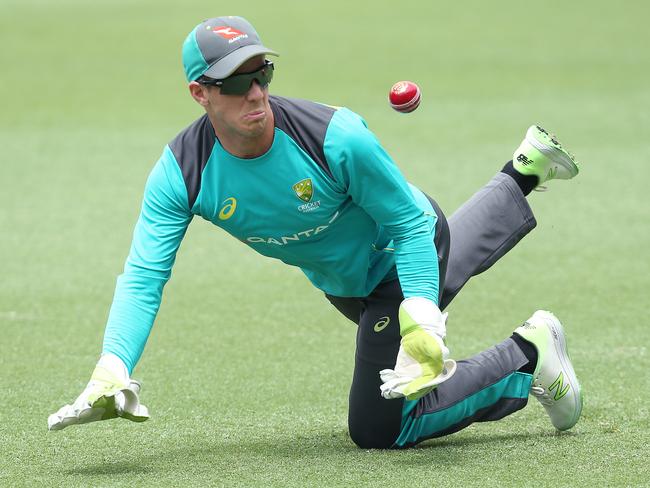
NEVER underestimate the role that luck plays in the game. This morning, Tim Paine will be reflecting on that more than anyone else. His first Ashes Test comes at the ripe old age of 32, and shortly after he had retirement at the forefront of his mind having virtually accepted a job for a cricket manufacturer.
For wicketkeepers, broken fingers are a fact of life, although the seriousness with which Paine broke his right index finger in 2010 was exceptional. For a long time afterwards, he played in fear of one more hit that would finish him off.
Wayne Smith of The Australian noted a similar story this week, recounting the tale of Peter Anderson, who was widely regarded as Australia’s best gloveman in the 1980s until he broke his finger ‘keeping to Ian Botham in the all-rounder’s Queensland days. Anderson’s replacement? The then little-known Ian Healy, who became one of Australia’s greatest. Anderson never played a Test.
With one place available in the team, bad luck, and good, can have more of a transformative effect on wicketkeepers than anyone else in cricket - as Paine knows all too well. There has been plenty of hostility in the build-up to this game but I cannot think anyone will wish anything but good luck to the Tasmanian on his Test match return.
The Times






To join the conversation, please log in. Don't have an account? Register
Join the conversation, you are commenting as Logout